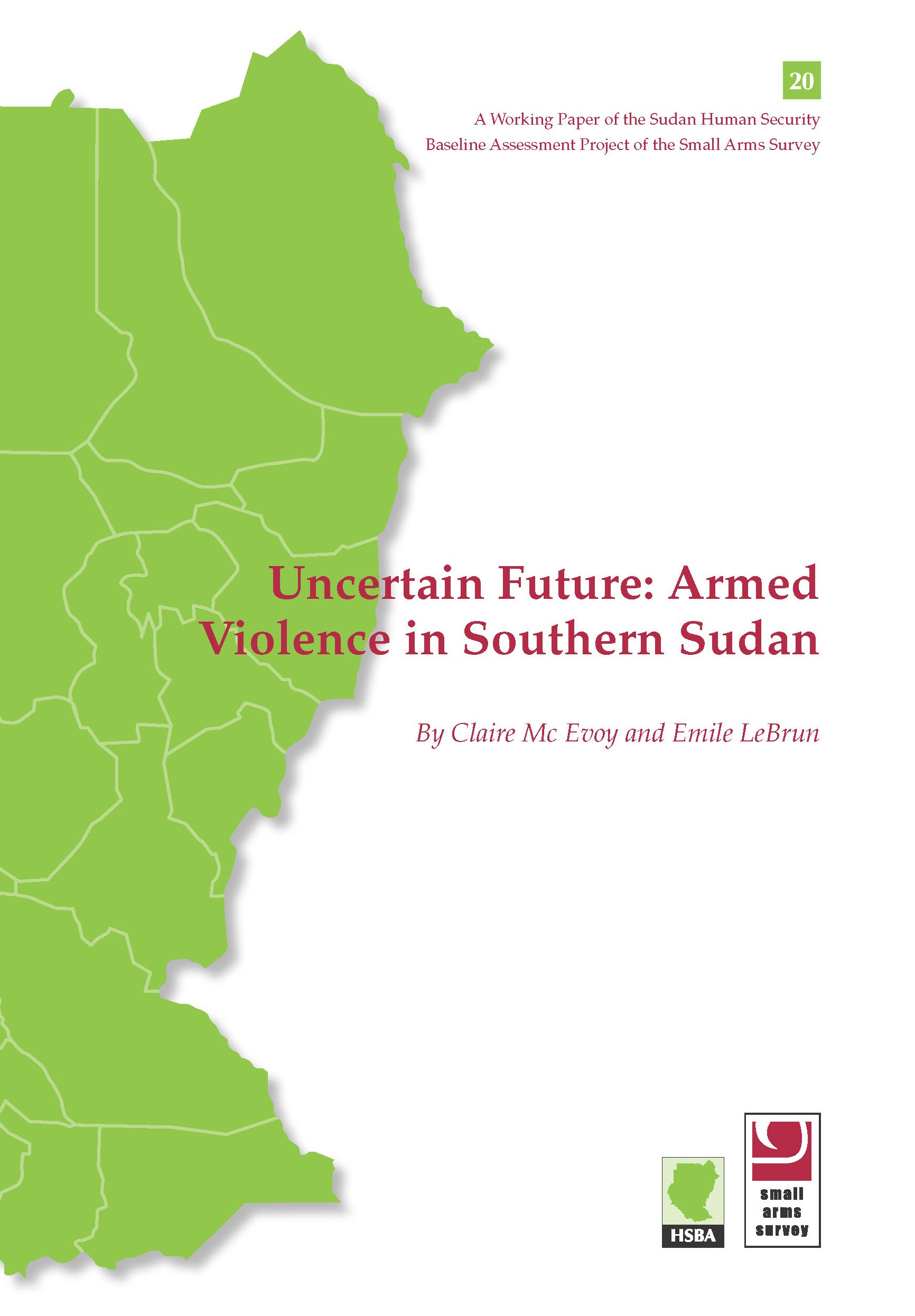
Uncertain Future: Armed Violence in Southern Sudan (HSBA Working Paper 20)
For the four-year-old Government of Southern Sudan, 2009 was a punishing year. It struggled to manage multiple financial, governance, and security crises while fighting for implementation of the Comprehensive Peace Agree-ment. Looming large were CPA-mandated legislative and executive elections scheduled for April 2010 and a referendum on Southern self-determination in January 2011. For much of the year, tensions between the ruling National Congress Party and the Sudan People’s Liberation Movement/Army were high, with mutual recriminations over stalled aspects of the peace process. Over the same period Southern Sudan experienced a wave of intense armed violence that swept through rural areas. The violence was well organized, involved multiple tribal groups, and exhibited a brutality not reported in recent years. By the end of the year, some 2,500 Southerners had been killed and 350,000 displaced, with no real progress made to address the conflicts.
This Working Paper focuses on the violence of 2009, including its root causes and connections to political and power rivalries at the local and national levels. It highlights current and probable future sources of insecurity as the country moves to national elections and the referendum on Southern deter-mination and beyond.